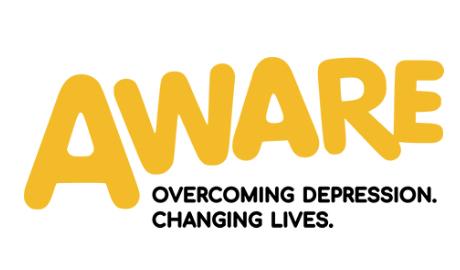Looking After Your Mental Health
Our mental health affects how we think and feel and how we cope with life’s ups and downs. The World Health Organisation defines mental health as ‘a state of well-being in which an individual realizes his or her own potential, can cope with the normal stresses of life, can work productively and fruitfully, and is able to make a contribution to her or his community’.
When our mental health is good we have a positive view of ourselves, have healthy relationships and are hopeful about the future. However, just like our physical health we need to look after it in order to maintain it. Our mental health doesn’t always stay the same. It can change as circumstances change and as we move through different stages of our life. Periods of change and difficult experiences can put it at risk depending on how we think about them and what support we have around us.
Mental Health Problems
We all have mental health problems from time to time e.g. when we are under pressure at work, are coping with a loss, have relationship problems or a physical illness. We may feel down, stressed or worried, but we normally recover after a relatively short period of time. However, if these difficulties persist or we don’t have good support, we may be at risk of developing a mental illness.
Mental Illness
A mental illness is a diagnosable condition that causes major changes in our thinking, behaviour and physical and emotional feelings. It affects our ability to work and have healthy relationships. The most common mental illnesses are depression and anxiety affecting one in four of us in a lifetime. The more severe illnesses bipolar disorder and schizophrenia are less common, affecting around one in ten of us.
If you are worried about your mental health or concerned that you may have a mental illness, talk to your GP as soon as possible. He will advise on suitable help or treatment if required. Using self-help strategies will help all of us to maintain good mental health or improve it when we have a mental health problem or illness.
How to Take Care of Your Mental Health
Be active: This helps lift our mood, reduces stress and anxiety, improves physical health, and gives us more energy. It doesn’t have to cost money by for example joining a gym. We just need to find an activity we enjoy such as walking, cycling or swimming and do it regularly. Even doing daily tasks faster so that we get slightly out of breath will help send ‘happy’ chemicals to our brain. When out shopping or at work take the stairs rather than the lift or escalator.
Stay connected: Keeping in contact with trusted and supportive family and friends can help you deal with the stresses of life. They can make you feel included and cared for and can offer different views from whatever’s going on inside your own head.
Make time for relaxation: Different things work for different people. Try reading, yoga or meditation, or just put your feet up and then make time for it on a regular basis.
Eat a good, balanced diet: This is just as important for mental health as it is for physical health. Eat regularly, eatbreakfast, eathealthily, eat fruit and vegetables and drink water. Food and drinks that contain caffeine, sugar and additives may give us a short term ‘boost’ but this is usually short-lived and may result in increased anxiety and low mood.
Balance sleep: Keep to a healthy sleep routine – including going to bed and getting up at more or less the same time each day. The more we sleep the more tired we seem to feel. If you have disturbed sleep patterns try not to ‘nap’ during the day to make up as this will just make the problem worse.
Talk about feelings or problems: ‘A problem shared is a problem halved’. This is a wise saying if we choose people we trust and who won’t judge us to confide in - just being listened to can help us feel supported and less alone. Talking can be a way to cope with a problem you’ve been carrying around in your head for a while.
Have some fun or be creative: This helps us feel better and increases our confidence. Doing something we enjoy probably means we’re good at it and achieving something boosts our self-esteem. Concentrating on a hobby like gardening or listening to music can help us forget our worries for a while and change our mood.
Be kind to yourself: Encourage rather than criticise yourself. We are all unique with different strengths and weaknesses. If we were all the same the world would be a very boring place. Yet we may find it difficult to accept compliments, never mind praise ourselves. We often focus too much on our faults. Treat yourself the way you would treat a friend.
Help others: Just doing another person a kindness can help us feel good. Helping out can make us feel needed and valued and that boosts our self-esteem. Try looking for volunteering opportunities in your area.
Beware of alcohol and other drugs: Drinking too much has a negative impact on our mental health. Whatever the short-term effects, alcohol is a depressant and there are healthier ways of coping with tough times. Drug misuse (whether these are illegal drugs, prescribed or over the counter medications) can lead to mental health problems or even serious mental illness.






























































